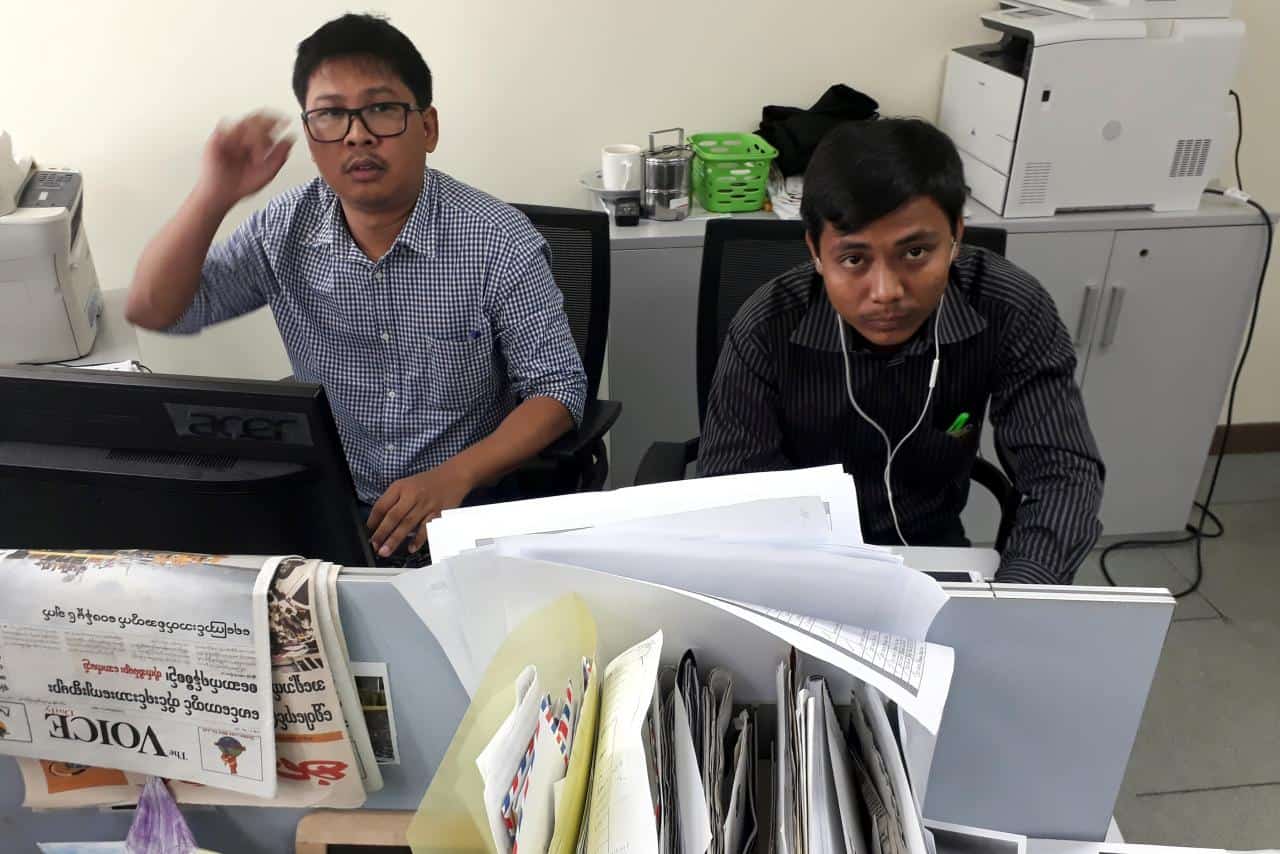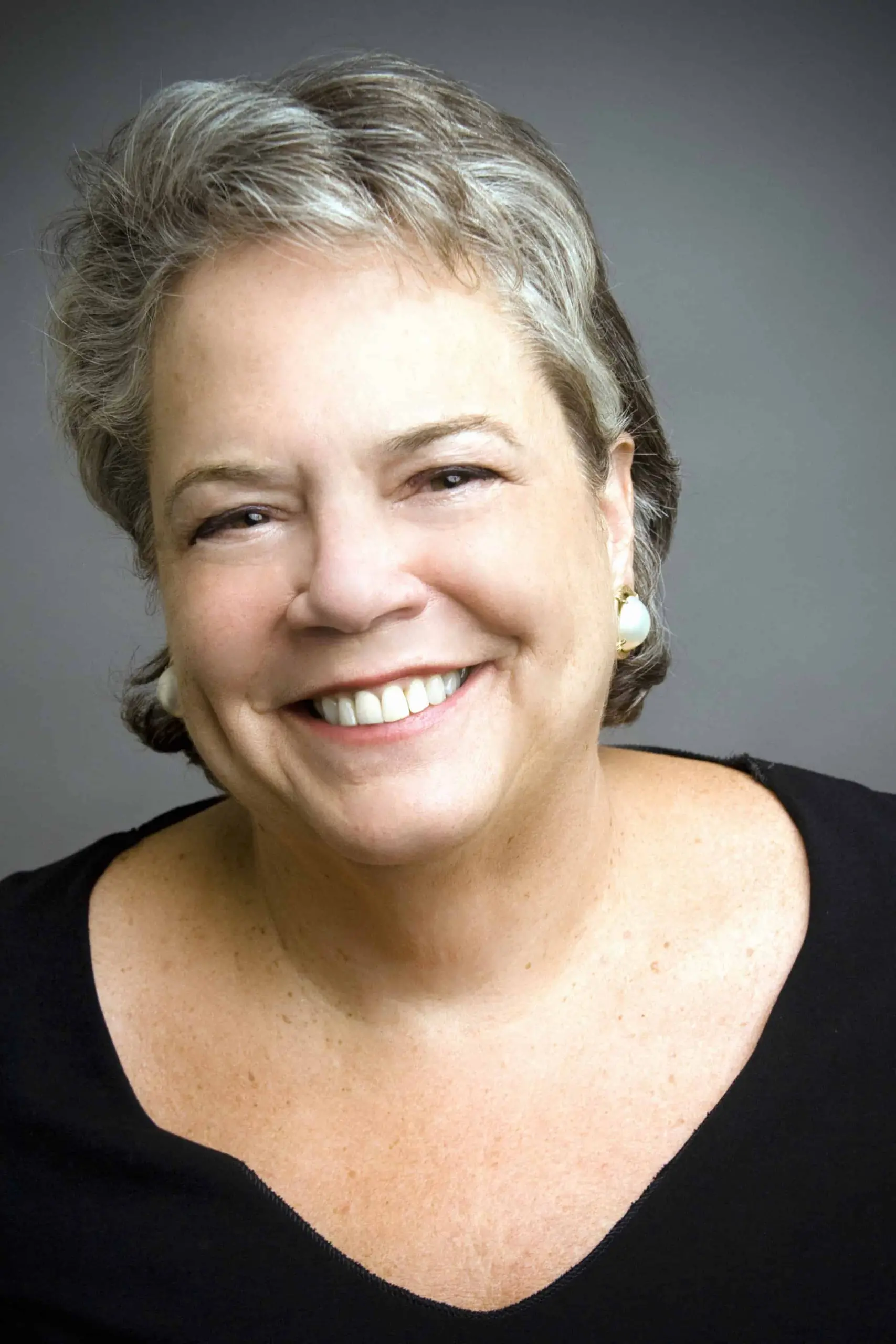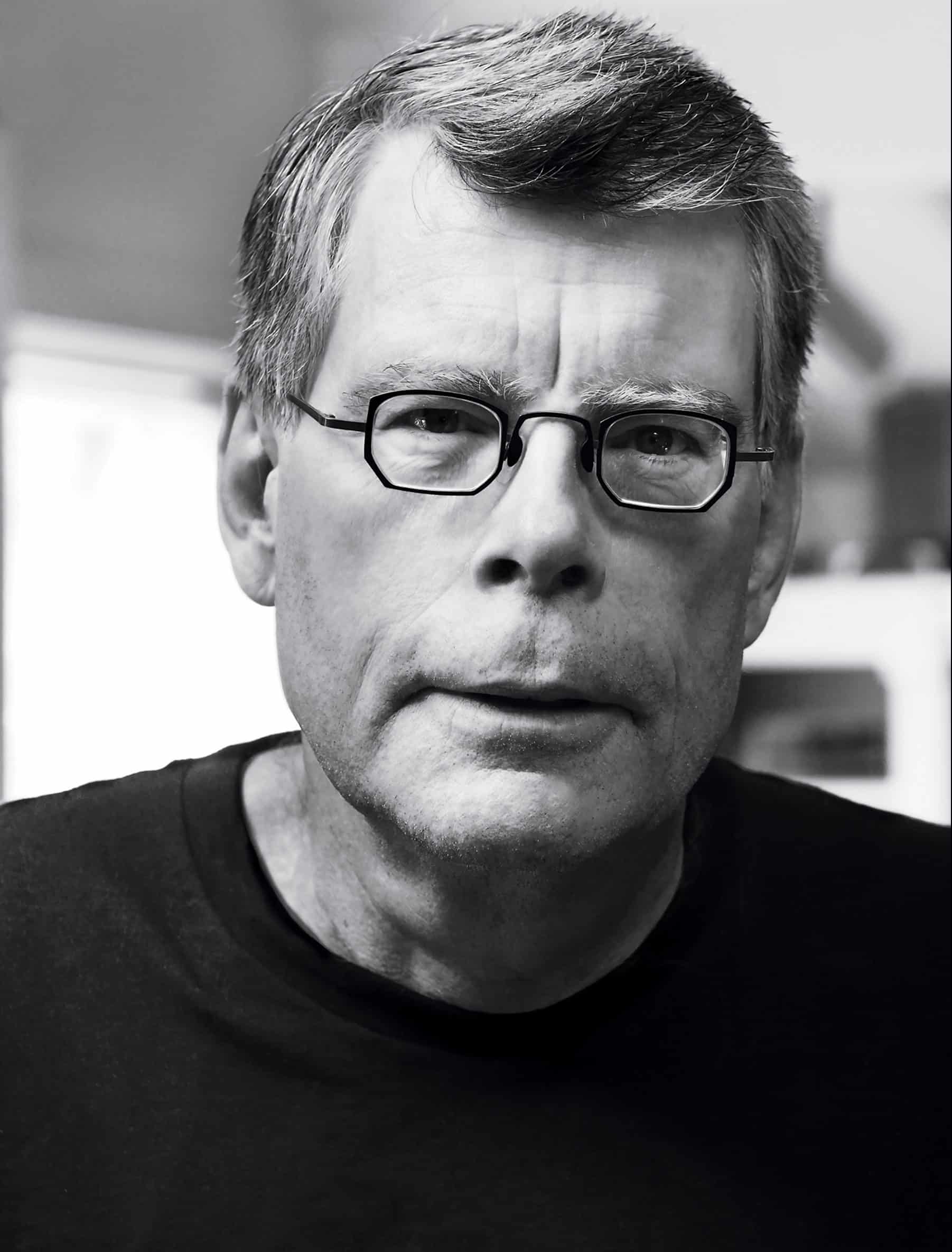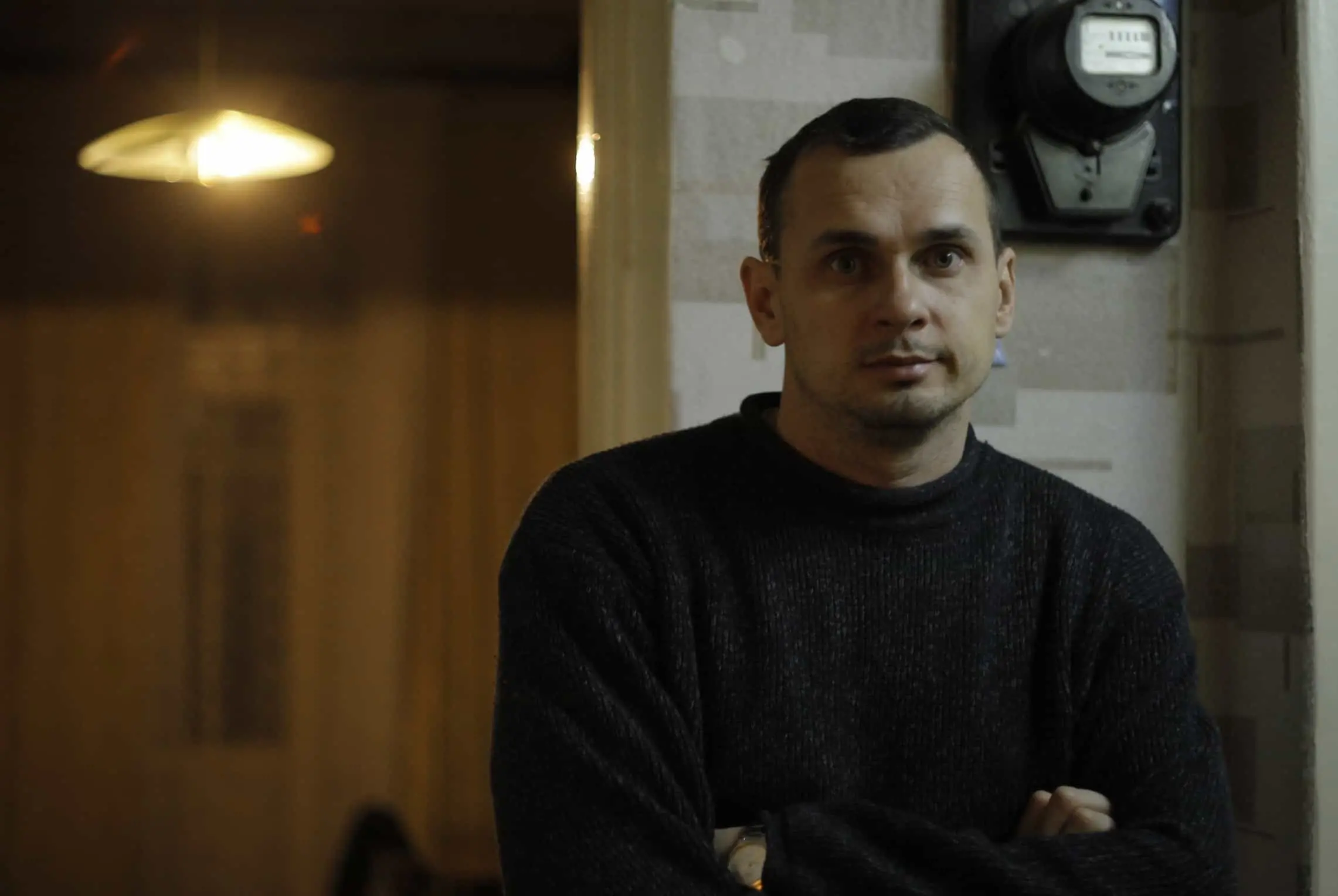The PEN/Barbara Goldsmith Freedom to Write Award, presented from 1987 – 2015, was designed to honor individual writers who have fought courageously in the face of adversity for their right to freedom of expression. (In 2016, the PEN/Barbey Freedom to Write Award was established to honor a writer in prison each year.)
We are grateful to the PEN/Barbara Goldsmith Freedom to Write Award Advisory Committee for dedicating their time and expertise to assisting PEN America in selecting deserving recipients:
Carroll Bogert
Barbara Goldsmith
Joanne Leedom-Ackerman
Laura Silber
Joel Simon
KHADIJA ISMAYILOVA, Azerbaijan
2015 PEN/Barbara Goldsmith Freedom to Write Award
Status: Conditional Release
ILHAM TOHTI, China
2014 PEN/Barbara Goldsmith Freedom to Write Award
Status: In Prison
AYSE BERKTAY, Turkey
2013 PEN/Barbara Goldsmith Freedom to Write Award
Status: Released, On Trial
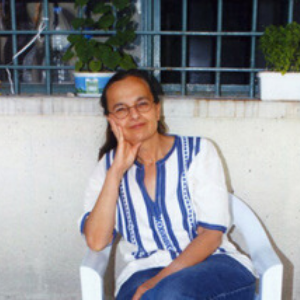 A translator, writer, and peaceful activist from Istanbul, Ayse Berktay was arrested on October 3, 2011, when police raided her home, seizing personal papers and materials, though no arrest or search warrant had been issued. She was charged under Turkey’s broad anti-terror legislation of “membership in an illegal organization” for allegedly “planning to stage demonstrations aimed at destabilizing the state, plotting to encourage women to throw themselves under police vehicles so as to create a furor, and attending meetings outside Turkey on behalf of the Kurdistan Communities Union (KCK),” a banned pro-Kurdish party. She was released on December 20, 2013, pending trial. Additionally, on August 9, 2016, she was one of six staff members of Özgür Gündem whose passports were ordered to be canceled by Istanbul’s 14th Court of Serious Crimes. She and the five other Özgür Gündem staffers are now facing terrorism charges as part of the larger investigation into the paper.
A translator, writer, and peaceful activist from Istanbul, Ayse Berktay was arrested on October 3, 2011, when police raided her home, seizing personal papers and materials, though no arrest or search warrant had been issued. She was charged under Turkey’s broad anti-terror legislation of “membership in an illegal organization” for allegedly “planning to stage demonstrations aimed at destabilizing the state, plotting to encourage women to throw themselves under police vehicles so as to create a furor, and attending meetings outside Turkey on behalf of the Kurdistan Communities Union (KCK),” a banned pro-Kurdish party. She was released on December 20, 2013, pending trial. Additionally, on August 9, 2016, she was one of six staff members of Özgür Gündem whose passports were ordered to be canceled by Istanbul’s 14th Court of Serious Crimes. She and the five other Özgür Gündem staffers are now facing terrorism charges as part of the larger investigation into the paper.
ESKINDER NEGA, Ethiopia
2012 PEN/Barbara Goldsmith Freedom to Write Award
Status: Released
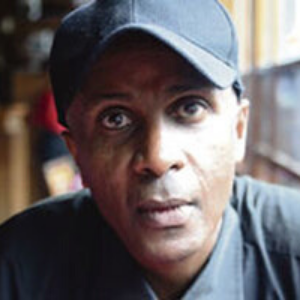 A journalist and dissident blogger based in Addis Ababa, Eskinder Nega is one of Ethiopia’s leading advocates for press freedom and freedom of expression. He was arrested under Ethiopia’s sweeping anti-terrorism legislation on September 14, 2011, after he published a column questioning the government’s claim that a number of journalists it had detained were suspected terrorists, and for criticizing the arrest of well-known Ethiopian actor and government critic on terror charges earlier that week. On June 27, 2012, Eskinder was found guilty of the charges against him, and on July 13, 2012, he was sentenced to 18 years in prison. He was jailed for almost seven years at Kaliti Prison in Addis Ababa, where political prisoners are housed with criminals and family visits are extremely limited, before being released on February 14, 2018 as part of a larger amnesty.
A journalist and dissident blogger based in Addis Ababa, Eskinder Nega is one of Ethiopia’s leading advocates for press freedom and freedom of expression. He was arrested under Ethiopia’s sweeping anti-terrorism legislation on September 14, 2011, after he published a column questioning the government’s claim that a number of journalists it had detained were suspected terrorists, and for criticizing the arrest of well-known Ethiopian actor and government critic on terror charges earlier that week. On June 27, 2012, Eskinder was found guilty of the charges against him, and on July 13, 2012, he was sentenced to 18 years in prison. He was jailed for almost seven years at Kaliti Prison in Addis Ababa, where political prisoners are housed with criminals and family visits are extremely limited, before being released on February 14, 2018 as part of a larger amnesty.
NASRIN SOTOUDEH, Iran
2011 PEN/Barbara Goldsmith Freedom to Write Award
Status: In Prison
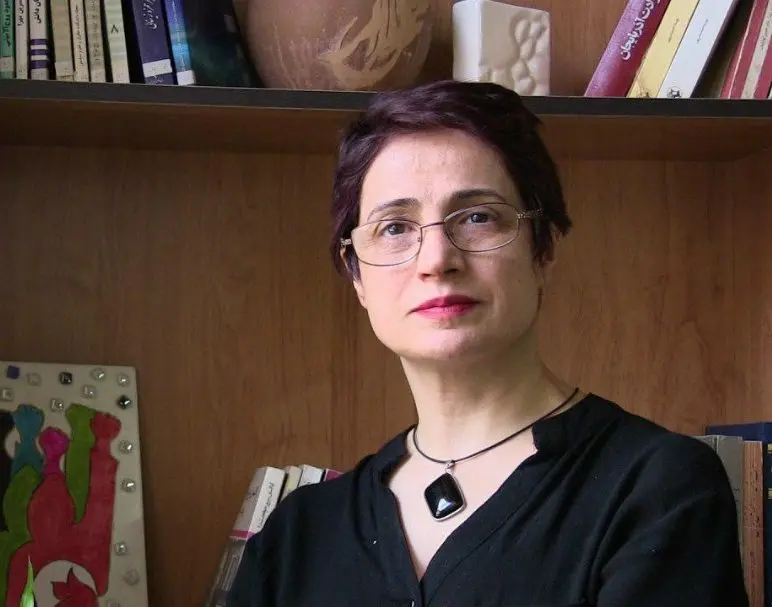 Prominent writer, human rights lawyer, and activist from Tehran, Nasrin Sotoudeh was summoned to the special court in Evin prison and arrested on charges of “spreading lies against the state,” “cooperating with the Center of Human Rights Defenders,” and “conspiracy to disturb order” on September 4, 2010. On January 9, 2011, she was sentenced to a total of 11 years in prison and barred from practicing law or leaving the country for 20 years after her release for interviews she gave in defense of her clients. In September 2011, an appeals court reduced Sotoudeh’s sentence from 11 years to six, and her ban from working a lawyer has been reduced from 20 to 10. She was freed in September 2013. About a year later Branch Two of the Lawyer’s Disciplinary Court at the Iranian Bar Association banned Sotoudeh from her law practice for three years. Shortly thereafter Sotoudeh began a sit-in in front of the Bar Association to protest this ruling. Days later Sotoudeh was arrested and detained, and released several hours later. On December 10, 2014, Human Rights Day and the fiftieth day of her sit-in, Sotoudeh was arrested and detained again, and released several hours later. Her license to practice was was reinstated in June 2015.
Prominent writer, human rights lawyer, and activist from Tehran, Nasrin Sotoudeh was summoned to the special court in Evin prison and arrested on charges of “spreading lies against the state,” “cooperating with the Center of Human Rights Defenders,” and “conspiracy to disturb order” on September 4, 2010. On January 9, 2011, she was sentenced to a total of 11 years in prison and barred from practicing law or leaving the country for 20 years after her release for interviews she gave in defense of her clients. In September 2011, an appeals court reduced Sotoudeh’s sentence from 11 years to six, and her ban from working a lawyer has been reduced from 20 to 10. She was freed in September 2013. About a year later Branch Two of the Lawyer’s Disciplinary Court at the Iranian Bar Association banned Sotoudeh from her law practice for three years. Shortly thereafter Sotoudeh began a sit-in in front of the Bar Association to protest this ruling. Days later Sotoudeh was arrested and detained, and released several hours later. On December 10, 2014, Human Rights Day and the fiftieth day of her sit-in, Sotoudeh was arrested and detained again, and released several hours later. Her license to practice was was reinstated in June 2015.
NAY PHONE LATT, Myanmar
2010 PEN/Barbara Goldsmith Freedom to Write Award
Status: Released
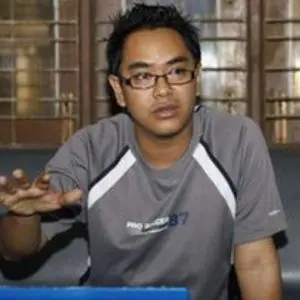 An influential Burmese blogger, political dissident, and poet from Rangoon, Nay Phone Latt’s Burmese language blog, has been praised by foreign media such as the BBC for providing invaluable news regarding the military crackdown in Burma in 2007 during a period of particularly strong censorship. He was arrested on January 29, 2008, attempting to “disrupt morality” and “disrupt security, stability or the restoration of order.” After being held for over nine months, Nay Phone Latt was sentenced by a specially-assembled court to a combined 20 years and six months in prison on November 10, 2008, for his work on his blog during the 2007 monks’ protests. On February 20, 2009, a court in Rangoon reduced Nay Phone Latt’s sentence by eight and a half years, leaving him to serve 12 years in prison. On January 13, 2012, he was among 651 prisoners to be released in a widespread presidential amnesty. He was elected to Yangon Region parliament in November 2015.
An influential Burmese blogger, political dissident, and poet from Rangoon, Nay Phone Latt’s Burmese language blog, has been praised by foreign media such as the BBC for providing invaluable news regarding the military crackdown in Burma in 2007 during a period of particularly strong censorship. He was arrested on January 29, 2008, attempting to “disrupt morality” and “disrupt security, stability or the restoration of order.” After being held for over nine months, Nay Phone Latt was sentenced by a specially-assembled court to a combined 20 years and six months in prison on November 10, 2008, for his work on his blog during the 2007 monks’ protests. On February 20, 2009, a court in Rangoon reduced Nay Phone Latt’s sentence by eight and a half years, leaving him to serve 12 years in prison. On January 13, 2012, he was among 651 prisoners to be released in a widespread presidential amnesty. He was elected to Yangon Region parliament in November 2015.
LIU XIAOBO, China
2009 PEN/Barbara Goldsmith Freedom to Write Award
Status: Deceased
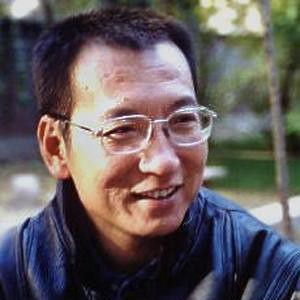 A renowned literary critic, writer, 2010 Nobel Peace Prize laureate, and political activist based in Beijing, Liu Xiaobo served as president of the Independent Chinese PEN Center from 2003 to 2007, held a seat on its Board until 2009, and now serves as Honorary Chairman. On December 8, 2008, Liu was arrested at his home and held virtually incommunicado for over six months under “residential surveillance” at an undisclosed location in Beijing. On June 23, 2009, he was charged with “inciting subversion of state power.” Liu was tried by the Beijing Intermediate People’s Court in December and days later he was convicted of the charges, based on his Manifesto calling for political reform and six articles he had written. He was sentenced to 11 years in prison and two years’ deprivation of political rights—the heaviest sentence ever handed down on subversion charges—and his appeal was rejected on February 11, 2010. After being diagnosed with late-stage liver cancer in June 2017, he was released on medical parole but passed away a few weeks’ later, on July 13, 2017.
A renowned literary critic, writer, 2010 Nobel Peace Prize laureate, and political activist based in Beijing, Liu Xiaobo served as president of the Independent Chinese PEN Center from 2003 to 2007, held a seat on its Board until 2009, and now serves as Honorary Chairman. On December 8, 2008, Liu was arrested at his home and held virtually incommunicado for over six months under “residential surveillance” at an undisclosed location in Beijing. On June 23, 2009, he was charged with “inciting subversion of state power.” Liu was tried by the Beijing Intermediate People’s Court in December and days later he was convicted of the charges, based on his Manifesto calling for political reform and six articles he had written. He was sentenced to 11 years in prison and two years’ deprivation of political rights—the heaviest sentence ever handed down on subversion charges—and his appeal was rejected on February 11, 2010. After being diagnosed with late-stage liver cancer in June 2017, he was released on medical parole but passed away a few weeks’ later, on July 13, 2017.
YANG TONGYAN, China
2008 PEN/Barbara Goldsmith Freedom to Write Award
Status: Deceased
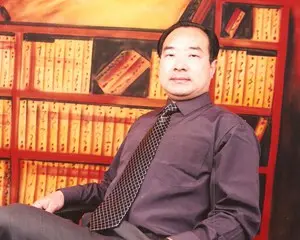 A dissident writer and member of the Independent Chinese PEN Center, Yang was detained without a warrant in Nanjing on December 23, 2005, and held incommunicado. His family was not notified of his arrest or whereabouts until a month later. Yang was convicted of subversion of state power for posting antigovernment articles on the Internet, organizing a branch of the (outlawed) China Democracy Party, participating in China’s Velvet Action Movement and being elected as a member of its “Interim Government of Democratic China,” and accepting illegal funds from overseas to transfer to jailed political dissidents and their families. On May 16, 2006 he was sentenced to 12 years’ imprisonment and four years’ deprivation of political rights. After being diagnosed with an aggressive form of brain cancer in August 2017, Yang was given medical parole and transferred to a hospital for an operation; however, he died in custody on November 7, 2017.
A dissident writer and member of the Independent Chinese PEN Center, Yang was detained without a warrant in Nanjing on December 23, 2005, and held incommunicado. His family was not notified of his arrest or whereabouts until a month later. Yang was convicted of subversion of state power for posting antigovernment articles on the Internet, organizing a branch of the (outlawed) China Democracy Party, participating in China’s Velvet Action Movement and being elected as a member of its “Interim Government of Democratic China,” and accepting illegal funds from overseas to transfer to jailed political dissidents and their families. On May 16, 2006 he was sentenced to 12 years’ imprisonment and four years’ deprivation of political rights. After being diagnosed with an aggressive form of brain cancer in August 2017, Yang was given medical parole and transferred to a hospital for an operation; however, he died in custody on November 7, 2017.
NORMANDO HERNÁNDEZ GONZÁLEZ, Cuba
2007 PEN/Barbara Goldsmith Freedom to Write Award
Status: Released
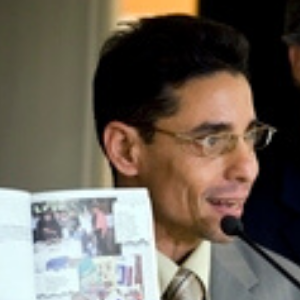 A writer, independent journalist, and director of the Camagüey College of Independent Journalists, Hernández was arrested on March 18, 2003, in his hometown of Camagüey, Cuba, along with 74 other journalists considered to be dissidents by the Cuban government. He was sentenced to 25 years’ imprisonment for reporting on the conditions of state-run services in Cuba and for criticizing the government’s management of issues such as tourism, agriculture, fishing, and cultural affairs. Hernández’ health has deteriorated dramatically since his imprisonment due to harsh treatment and prison conditions. He was released on July 13, 2010 and exiled to Spain.
A writer, independent journalist, and director of the Camagüey College of Independent Journalists, Hernández was arrested on March 18, 2003, in his hometown of Camagüey, Cuba, along with 74 other journalists considered to be dissidents by the Cuban government. He was sentenced to 25 years’ imprisonment for reporting on the conditions of state-run services in Cuba and for criticizing the government’s management of issues such as tourism, agriculture, fishing, and cultural affairs. Hernández’ health has deteriorated dramatically since his imprisonment due to harsh treatment and prison conditions. He was released on July 13, 2010 and exiled to Spain.
MOHAMMED BENCHICOU, Algeria
2006 PEN/Barbara Goldsmith Freedom to Write Award
Status: Released
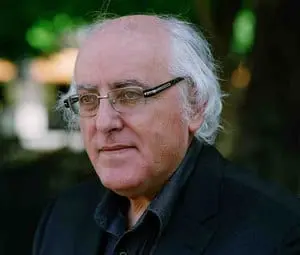 A writer and former director of Le Matin, a private daily newspaper that maintained an independent, critical editorial line toward the Algerian government. In August 2003, Benchicou was apprehended by the police at Algiers airport on his return from France and charged with currency control violations in a move widely understood to be an attempt to silence Le Matin in the run-up to the 2004 Algerian presidential election. In June 2004, Benchicou was sentenced to a two-year prison term and received a fine of 20m dinars (approx. US$280,000), resulting in the closure of Le Matin. At the time of the award, Benchicou had approximately 50 other cases pending against him and is reportedly taken to court once or twice a week for press charges dating back to 2002. He was released on June 14, 2006.
A writer and former director of Le Matin, a private daily newspaper that maintained an independent, critical editorial line toward the Algerian government. In August 2003, Benchicou was apprehended by the police at Algiers airport on his return from France and charged with currency control violations in a move widely understood to be an attempt to silence Le Matin in the run-up to the 2004 Algerian presidential election. In June 2004, Benchicou was sentenced to a two-year prison term and received a fine of 20m dinars (approx. US$280,000), resulting in the closure of Le Matin. At the time of the award, Benchicou had approximately 50 other cases pending against him and is reportedly taken to court once or twice a week for press charges dating back to 2002. He was released on June 14, 2006.
RAKHIM ESENOV, Turkmenistan
2006 PEN/Barbara Goldsmith Freedom to Write Award
Status: Charges Dropped
A novelist, historian and freelance correspondent for Radio Free Europe/Radio Liberty (RFE/RL), Esenov was charged in 2004 with “inciting social, national and religious hatred using the mass media,” which he has indicated refers to statements made by characters in his novel The Crowned Wanderer. The novel is set in the 16th Mogul Empire and centers around Bayram Khan, a poet, philosopher and army general who is said to have saved Turkmenistan from fragmentation. In 1997, Turkmen president Saparmurad Niyazov banned and denounced the novel as “historically inaccurate” for correctly portraying Khan as a Shia rather than a Sunni MuslimFollowing a two month imprisonment, Esenov was released after submitting a written guarantee to remain in Turkmenistan, although he remained under close investigation and the charges against him had not been dropped. But charges against him were dropped in March 2008.
DEYDA HYDARA, Gambia
2005 PEN/Barbara Goldsmith Freedom to Write Award
Status: Murdered, award given posthumously
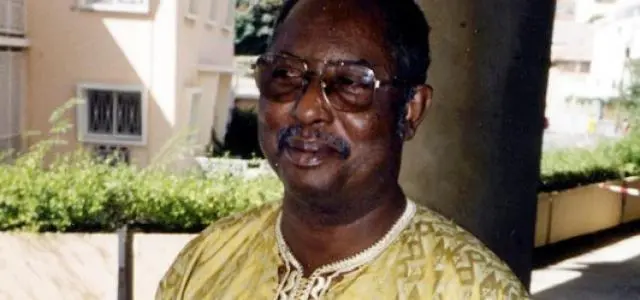 A newspaper publisher and press freedom champion who was gunned down in December 2004 for challenging increasingly restrictive press laws in the Gambia. The shooting occurred two days after the Gambian National Assembly passed a new round of repressive media legislation that imposed mandatory prison terms for any published work judged to be “seditious” or “libelous” and included prison terms of at least six months for first time infractions and three years for repeat offenders. The bill also increased the scope of what might be deemed libelous. Hydara and other independent journalists had publicly opposed the law and Hydara had published an editorial denouncing it the day before he was killed.
A newspaper publisher and press freedom champion who was gunned down in December 2004 for challenging increasingly restrictive press laws in the Gambia. The shooting occurred two days after the Gambian National Assembly passed a new round of repressive media legislation that imposed mandatory prison terms for any published work judged to be “seditious” or “libelous” and included prison terms of at least six months for first time infractions and three years for repeat offenders. The bill also increased the scope of what might be deemed libelous. Hydara and other independent journalists had publicly opposed the law and Hydara had published an editorial denouncing it the day before he was killed.
ALI AL-DOMAINI, Saudi Arabia
2005 PEN/Barbara Goldsmith Freedom to Write Award
Status: Released
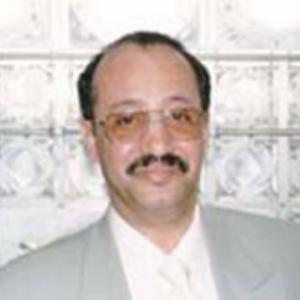 Ali al-Domaini is a leading Saudi literary figure whose works include three collections of poetry and a novel. On March 15, 2004, he and eleven other leading Saudi intellectuals were arrested for criticizing the newly-established National Commission on Human Rights (NCHR), and for planning to set up their own human rights organization. Eight of the detainees were subsequently released, but Domaini and two other leading intellectuals remained in prison and were charged, reportedly after refusing to sign a document renouncing their political activism. The authorities accused Domaini of threatening national unity, doubting the independence of the Saudi judiciary, organizing meetings and justifying violence, among other charges, and was sentenced to nine years in prison in May 2005. He was released on August 8, 2005. Reportedly, Domaini has no passport and has been denied the right to work.
Ali al-Domaini is a leading Saudi literary figure whose works include three collections of poetry and a novel. On March 15, 2004, he and eleven other leading Saudi intellectuals were arrested for criticizing the newly-established National Commission on Human Rights (NCHR), and for planning to set up their own human rights organization. Eight of the detainees were subsequently released, but Domaini and two other leading intellectuals remained in prison and were charged, reportedly after refusing to sign a document renouncing their political activism. The authorities accused Domaini of threatening national unity, doubting the independence of the Saudi judiciary, organizing meetings and justifying violence, among other charges, and was sentenced to nine years in prison in May 2005. He was released on August 8, 2005. Reportedly, Domaini has no passport and has been denied the right to work.
NASSER ZARAFSHAN, Iran
2004 PEN/Barbara Goldsmith Freedom to Write Award
Status: Released
 Author, translator, and attorney, Nasser Zarafshan, was sentenced to five years’ imprisonment and 70 lashes on March 19, 2002, for his criticism of the official investigation carried out into the murders of five Iranian intellectuals and writers in 1998, came to be known as the “serial murders.” Since his imprisonment he was not only denied medical care for an urgent kidney disease, but was also held in a cell with prisoners of violent crimes. On June 7, 2005, Zarafshan started a hunger strike to protest the absence of medical treatment. After a significant deterioration in his health, he ended his hunger strike and was hospitalized for an operation on his kidney in July 2005. He was released upon completion of his sentence in March 2007.
Author, translator, and attorney, Nasser Zarafshan, was sentenced to five years’ imprisonment and 70 lashes on March 19, 2002, for his criticism of the official investigation carried out into the murders of five Iranian intellectuals and writers in 1998, came to be known as the “serial murders.” Since his imprisonment he was not only denied medical care for an urgent kidney disease, but was also held in a cell with prisoners of violent crimes. On June 7, 2005, Zarafshan started a hunger strike to protest the absence of medical treatment. After a significant deterioration in his health, he ended his hunger strike and was hospitalized for an operation on his kidney in July 2005. He was released upon completion of his sentence in March 2007.
LÊ CHI QUANG, Vietnam
2004 PEN/Barbara Goldsmith Freedom to Write Award
Status: Released
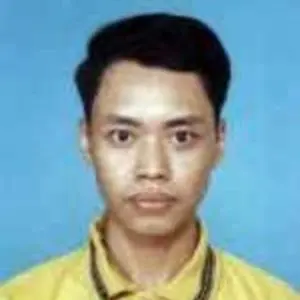 Le Chi Quang is a lawyer and computer teacher whose essay “Beware of Imperialist China” was distributed on the Internet. He was arrested at an Internet café in Hanoi and on November 8, 2002, was sentenced to four years in prison and three years of house arrest after a half-day closed trial on charges of disseminating propaganda against the state. He suffered from serious kidney dysfunction, and there was concern that he had not been allowed to receive an appropriate diagnosis of his condition and effective medical treatment. He and another prisoner reportedly shared a squalid six-square-meter cell. He was released from prison in June 2004.
Le Chi Quang is a lawyer and computer teacher whose essay “Beware of Imperialist China” was distributed on the Internet. He was arrested at an Internet café in Hanoi and on November 8, 2002, was sentenced to four years in prison and three years of house arrest after a half-day closed trial on charges of disseminating propaganda against the state. He suffered from serious kidney dysfunction, and there was concern that he had not been allowed to receive an appropriate diagnosis of his condition and effective medical treatment. He and another prisoner reportedly shared a squalid six-square-meter cell. He was released from prison in June 2004.
ZOUHAIR YAHYAOUI, Tunisia
2003 PEN/Barbara Goldsmith Freedom to Write Award
Status: Released, Deceased
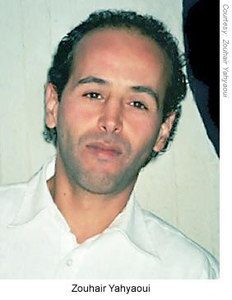 Zouhair Yahyaoui founded internet magazine TUNeZINE.com after graduating from college to disseminate information on the struggle for democracy in Tunisia and publish opposition material. Shortly after TUNeZINE invited readers to vote on whether Tunisia was “a republic, a kingdom, a zoo, or a prison,” Yahyaoui was arrested and subsequently tried and sentenced to 28 months in prison for “propagation of false news,” “non-authorized usage of an Internet connection,” and “theft from an employer.” On appeal, his sentence was reduced to 24 months. Yahyaoui went on several hunger strikes since his imprisonment to protest the appalling prison conditions and ill treatment he has suffered. He was released in November 2003. Yahyaoui died of a heart attack on Sunday, March 13, 2005.
Zouhair Yahyaoui founded internet magazine TUNeZINE.com after graduating from college to disseminate information on the struggle for democracy in Tunisia and publish opposition material. Shortly after TUNeZINE invited readers to vote on whether Tunisia was “a republic, a kingdom, a zoo, or a prison,” Yahyaoui was arrested and subsequently tried and sentenced to 28 months in prison for “propagation of false news,” “non-authorized usage of an Internet connection,” and “theft from an employer.” On appeal, his sentence was reduced to 24 months. Yahyaoui went on several hunger strikes since his imprisonment to protest the appalling prison conditions and ill treatment he has suffered. He was released in November 2003. Yahyaoui died of a heart attack on Sunday, March 13, 2005.
BERNARDO ARÉVALO PADRÓN, Cuba
2003 PEN/Barbara Goldsmith Freedom to Write Award
Status: Released
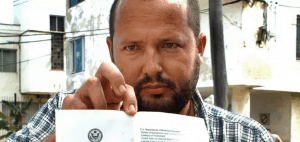 An independent journalist imprisoned since 1997 in connection with his independent news reporting, Bernardo Arévalo Padrón was transferred in July from a labor camp to maximum security Ariza Prison. Arévalo Padrón remained in jail despite being eligible for parole since October 2000. Authorities maintained that he had not been sufficiently “politically re-educated.” He had vowed to continue his journalistic work even behind bars by reporting news of prison conditions. Bernardo Arévalo Padrón was released on November 13, 2003, after spending six years in prison.
An independent journalist imprisoned since 1997 in connection with his independent news reporting, Bernardo Arévalo Padrón was transferred in July from a labor camp to maximum security Ariza Prison. Arévalo Padrón remained in jail despite being eligible for parole since October 2000. Authorities maintained that he had not been sufficiently “politically re-educated.” He had vowed to continue his journalistic work even behind bars by reporting news of prison conditions. Bernardo Arévalo Padrón was released on November 13, 2003, after spending six years in prison.
AUNG MYINT, Myanmar
2002 PEN/Barbara Goldsmith Freedom to Write Award
Status: Released
 Journalist, poet, and head of the information department of the National League for Democracy (NLD), Aung Myint was first arrested in 1997 for his activities with the NLD. After spending two years in prison, he became the head of the NLD’s information department in Rangoon. On September 14, 2000, Aung and his assistant Kyaw Sein Oo were arrested by members of Unit 14 of the Military Intelligence Service for distributing information regarding repression of the NLD to international press agencies and to Western diplomats based in Rangoon. Aung was charged with violating the State Protection and Emergency Provision Acts and sentenced by a military court on December 20, 2000 to 21 years’ imprisonment. Four other NLD members were tried by the military court and sentenced to heavy prison terms as well. Aung Myint was released from Insein Prison on January 3, 2005.
Journalist, poet, and head of the information department of the National League for Democracy (NLD), Aung Myint was first arrested in 1997 for his activities with the NLD. After spending two years in prison, he became the head of the NLD’s information department in Rangoon. On September 14, 2000, Aung and his assistant Kyaw Sein Oo were arrested by members of Unit 14 of the Military Intelligence Service for distributing information regarding repression of the NLD to international press agencies and to Western diplomats based in Rangoon. Aung was charged with violating the State Protection and Emergency Provision Acts and sentenced by a military court on December 20, 2000 to 21 years’ imprisonment. Four other NLD members were tried by the military court and sentenced to heavy prison terms as well. Aung Myint was released from Insein Prison on January 3, 2005.
TOHTI TUNYAZ, Xinjiang Autonomous Region, China
2002 PEN/Barbara Goldsmith Freedom to Write Award
Status: Released
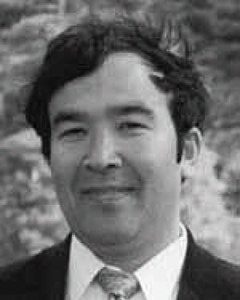 Ethnic Uighur historian and writer, Tohti Tunyaz was first arrested on February 6, 1998. His only proven “crime” appears to be that of obtaining and copying part of a 50-year-old document for his research with the help of an official librarian, which the authorities claimed was “theft of classified information.” Tohti was charged on November 10, 1998, with “inciting national disunity” and “stealing state secrets for foreign persons” (later amended by the Supreme Court to “illegally acquiring state secrets.”) He was convicted by the Urumqi Intermediate People’s Court on March 10, 1999, and following an appeal, was sentenced by China’s Supreme Court on February 15, 2000 to 11 years in prison with an additional two years’ deprivation of political rights for “stealing state secrets” and “inciting national disunity.” Tohti Tunyaz was released from the Xinjiang Uighur Autonomous Region Prison No. 3, Urumqi, in February 2009, upon completion of his sentence.
Ethnic Uighur historian and writer, Tohti Tunyaz was first arrested on February 6, 1998. His only proven “crime” appears to be that of obtaining and copying part of a 50-year-old document for his research with the help of an official librarian, which the authorities claimed was “theft of classified information.” Tohti was charged on November 10, 1998, with “inciting national disunity” and “stealing state secrets for foreign persons” (later amended by the Supreme Court to “illegally acquiring state secrets.”) He was convicted by the Urumqi Intermediate People’s Court on March 10, 1999, and following an appeal, was sentenced by China’s Supreme Court on February 15, 2000 to 11 years in prison with an additional two years’ deprivation of political rights for “stealing state secrets” and “inciting national disunity.” Tohti Tunyaz was released from the Xinjiang Uighur Autonomous Region Prison No. 3, Urumqi, in February 2009, upon completion of his sentence.
SHAHLA LAHIJI, Iran
2001 PEN/Barbara Goldsmith Freedom to Write Award
Status: Released
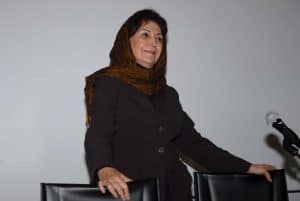 The first woman to run a publishing house in Iran, Shahla Lahiji is one of 19 Iranian writers and intellectuals prosecuted in Tehran for participating in an academic and cultural conference in Berlin in April 2000. After returning to Iran, she was arrested and tried behind closed doors by the Islamic Revolutionary Court in October, convicted, and sentenced to three years and six months in prison for acting against national security by attending the conference, plus an additional six months for propaganda against the Islamic system for commenting on the dangers confronting writers in Iran. On February 27, 2002, Shahla Lahiji’s sentence was reduced to six months’ imprisonment, calculated as time served (two months’ imprisonment) plus a 500,000 rial fine. She continues to reside and work in Tehran.
The first woman to run a publishing house in Iran, Shahla Lahiji is one of 19 Iranian writers and intellectuals prosecuted in Tehran for participating in an academic and cultural conference in Berlin in April 2000. After returning to Iran, she was arrested and tried behind closed doors by the Islamic Revolutionary Court in October, convicted, and sentenced to three years and six months in prison for acting against national security by attending the conference, plus an additional six months for propaganda against the Islamic system for commenting on the dangers confronting writers in Iran. On February 27, 2002, Shahla Lahiji’s sentence was reduced to six months’ imprisonment, calculated as time served (two months’ imprisonment) plus a 500,000 rial fine. She continues to reside and work in Tehran.
MAMADALI MAHMUDOV, Uzbekistan
2001 PEN/Barbara Goldsmith Freedom to Write Award
Status: Released
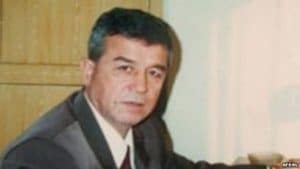 Renowned novelist and opposition activist Mamadali Mahmudov disappeared into the hands of agents of the Committee for National Security in Uzbekistan on February 19, 1999. After he “reappeared” in prison, he was charged with threatening the president and the constitutional order, allegedly in connection with a series of explosions in Tashkent. He was tried along with five other men solely on the basis that they had copies of the banned newspaper Erk in their possession; all six were reportedly tortured and forced to sign self-incriminating statements, and some were coerced to declare their guilt on a government-sponsored national television program. In August 1999, he was sentenced to 14 years in prison. While Mahmudov was in prison, well-documented reports of torture contributed to urgent fears his health and safety. Mahmudov was released from Chirchuk Prison on April 19, 2013, after 14 years in jail.
Renowned novelist and opposition activist Mamadali Mahmudov disappeared into the hands of agents of the Committee for National Security in Uzbekistan on February 19, 1999. After he “reappeared” in prison, he was charged with threatening the president and the constitutional order, allegedly in connection with a series of explosions in Tashkent. He was tried along with five other men solely on the basis that they had copies of the banned newspaper Erk in their possession; all six were reportedly tortured and forced to sign self-incriminating statements, and some were coerced to declare their guilt on a government-sponsored national television program. In August 1999, he was sentenced to 14 years in prison. While Mahmudov was in prison, well-documented reports of torture contributed to urgent fears his health and safety. Mahmudov was released from Chirchuk Prison on April 19, 2013, after 14 years in jail.
FLORA BROVINA, Kosovo
2000 PEN/Barbara Goldsmith Freedom to Write Award
Status: Released
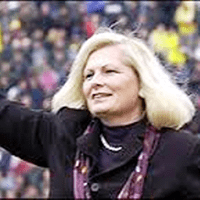 Dr. Brovina is an ethnic Albanian poet and pediatrician. As founder and president of the League of Albanian Women in Kosovo, she was a key organizer of peaceful demonstrations protesting human rights abuses by Serbian authorities, and after the outbreak of the war, she chose to remain in Pristina to run a shelter for women and children. On April 22, 1999, Dr. Brovina was abducted from her house and held incommunicado for two weeks by masked paramilitaries acting for the Serbian government. As NATO ground forces entered Kosovo, she was among hundreds of detainees transferred to a prison in Serbia, and on December 9 a Serbian court in Nis convicted her of “terrorist acts” against the Yugoslav state during the NATO air campaign in Kosovo, and sentenced her to 12 years in prison. She was released on November 2, 2000.
Dr. Brovina is an ethnic Albanian poet and pediatrician. As founder and president of the League of Albanian Women in Kosovo, she was a key organizer of peaceful demonstrations protesting human rights abuses by Serbian authorities, and after the outbreak of the war, she chose to remain in Pristina to run a shelter for women and children. On April 22, 1999, Dr. Brovina was abducted from her house and held incommunicado for two weeks by masked paramilitaries acting for the Serbian government. As NATO ground forces entered Kosovo, she was among hundreds of detainees transferred to a prison in Serbia, and on December 9 a Serbian court in Nis convicted her of “terrorist acts” against the Yugoslav state during the NATO air campaign in Kosovo, and sentenced her to 12 years in prison. She was released on November 2, 2000.
XUE DEYUN, China
2000 PEN/Barbara Goldsmith Freedom to Write Award
Status: Released
 Poet and editor Xue Deyun (pen name Ma Zhe) was arrested on January 26, 1998, along with three other poets for creating and attempting to launch China Cultural Renaissance, a journal promoting literary freedom. While the three other poets were released later in 1998, Xue was convicted of “engaging in subversive activities,” “disturbing the social order,” and inciting to “overthrow the socialist system by rumor-mongering [or] slander.” PEN believes that Xue received this harsh sentence because of his influence as a writer and leader in the Guizhou cultural revival, a movement calling for increased literary freedom in China. Xue Deyun was released on July 25, 2001 after Guizhou’s High Court reduced his sentence on appeal. He is an Honorary Member of PEN American Center, as well as the Canadian, Ghanaian, and Norwegian PEN Centers.
Poet and editor Xue Deyun (pen name Ma Zhe) was arrested on January 26, 1998, along with three other poets for creating and attempting to launch China Cultural Renaissance, a journal promoting literary freedom. While the three other poets were released later in 1998, Xue was convicted of “engaging in subversive activities,” “disturbing the social order,” and inciting to “overthrow the socialist system by rumor-mongering [or] slander.” PEN believes that Xue received this harsh sentence because of his influence as a writer and leader in the Guizhou cultural revival, a movement calling for increased literary freedom in China. Xue Deyun was released on July 25, 2001 after Guizhou’s High Court reduced his sentence on appeal. He is an Honorary Member of PEN American Center, as well as the Canadian, Ghanaian, and Norwegian PEN Centers.
FARAJ AHMAD BIRQDAR, Syria
1999 PEN/Barbara Goldsmith Freedom to Write Award
Status: Released
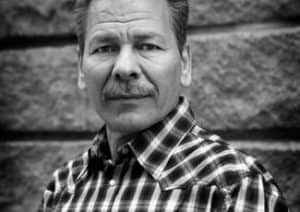 Faraj Birqdar remained one of the longest-detained writers in the world. His work on behalf of free expression and non-violent political action led to his 1987 arrest on suspicion of membership in the Party for Communist Action. In 1993, he was sentenced to 15 years’ imprisonment after being held without charge or trial for over six years. He suffers from various health problems resulting from the brutal torture he has endured. An honorary member of American, English, Netherlands, and Slovak PEN Centers, Birqdar won the Hellman/Hammett Free Expression Award in 1998. He was released on November 16, 2000 under a presidential amnesty.
Faraj Birqdar remained one of the longest-detained writers in the world. His work on behalf of free expression and non-violent political action led to his 1987 arrest on suspicion of membership in the Party for Communist Action. In 1993, he was sentenced to 15 years’ imprisonment after being held without charge or trial for over six years. He suffers from various health problems resulting from the brutal torture he has endured. An honorary member of American, English, Netherlands, and Slovak PEN Centers, Birqdar won the Hellman/Hammett Free Expression Award in 1998. He was released on November 16, 2000 under a presidential amnesty.
ESBER YAGMURDERELI, Turkey
1999 PEN/Barbara Goldsmith Freedom to Write Award
Status: Released
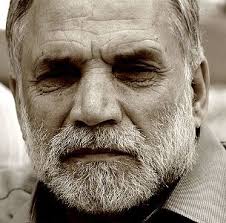 Blind playwright, poet, short story author, screenwriter, and lawyer, Esber Yagmurdereli has been in and out of prison since 1978. After 13 years, he was released in 1991 only to suffer ongoing persecution and frequent arrests for speaking out against the Turkish government’s human rights abuses. Yagmurdereli is an honorary member of Swedish, Slovak, Canadian, Czech, and San Miguel PEN Centers and now PEN American Center. At the time of the award, he had been incarcerated near Ankara for almost a year. In addition to his distinguished literary and legal careers, he has also edited several magazines and political journals, including Yeni Eylem. He was released on January 18, 2001 after a review of his sentence under an amnesty announced in December 2000.
Blind playwright, poet, short story author, screenwriter, and lawyer, Esber Yagmurdereli has been in and out of prison since 1978. After 13 years, he was released in 1991 only to suffer ongoing persecution and frequent arrests for speaking out against the Turkish government’s human rights abuses. Yagmurdereli is an honorary member of Swedish, Slovak, Canadian, Czech, and San Miguel PEN Centers and now PEN American Center. At the time of the award, he had been incarcerated near Ankara for almost a year. In addition to his distinguished literary and legal careers, he has also edited several magazines and political journals, including Yeni Eylem. He was released on January 18, 2001 after a review of his sentence under an amnesty announced in December 2000.
OGAGA IFOWODO, Nigeria
1998 PEN/Barbara Goldsmith Freedom to Write Award
Status: Released
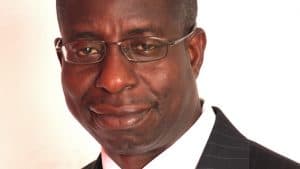 Poet Ogaga Ifowodo was arrested around November 6, 1997, on his way home from the Commonwealth Summit in Edinburgh, where he and other activists appealed for stronger sanctions against General Abacha’s government. From his arrest until April 1998, he was held in solitary confinement in a Nigerian prison, without access to his family, lawyers, or doctors. His arrest was not officially acknowledged, nor were any charges brought against him. After studying law in Benin and Lagos, Ifowodo wrote Annual Reports on Human Rights in Nigeria for the Civil Liberties Organization (CLO) in 1992, 1993 and 1994; he also edited the publication Human Rights in Retreat, which chronicled the human rights violations by the military regime of General Ibrahim Babangida. At the time of the award, Ifowodo was coordinates the CLO International Campaign for Democracy in Nigeria and contributes regularly to the periodical Liberty. The recipient of the 1996 Association of Nigerian Authors (ANA) Award for Poetry, Ifowodo is author of two collections of poetry, including Maroko’s Blood and Red Rain; his poems have been published in The Guardian, Times Review, Okike, ANA Review, and Stand Magazine as well as in the anthology Voices From the Fringe (1989). Ifowodo is an honorary fellow at the Heinrich Böll Foundation in Germany, and an Honorary Member of PEN American Center and West German PEN. He was released in May 1998.
Poet Ogaga Ifowodo was arrested around November 6, 1997, on his way home from the Commonwealth Summit in Edinburgh, where he and other activists appealed for stronger sanctions against General Abacha’s government. From his arrest until April 1998, he was held in solitary confinement in a Nigerian prison, without access to his family, lawyers, or doctors. His arrest was not officially acknowledged, nor were any charges brought against him. After studying law in Benin and Lagos, Ifowodo wrote Annual Reports on Human Rights in Nigeria for the Civil Liberties Organization (CLO) in 1992, 1993 and 1994; he also edited the publication Human Rights in Retreat, which chronicled the human rights violations by the military regime of General Ibrahim Babangida. At the time of the award, Ifowodo was coordinates the CLO International Campaign for Democracy in Nigeria and contributes regularly to the periodical Liberty. The recipient of the 1996 Association of Nigerian Authors (ANA) Award for Poetry, Ifowodo is author of two collections of poetry, including Maroko’s Blood and Red Rain; his poems have been published in The Guardian, Times Review, Okike, ANA Review, and Stand Magazine as well as in the anthology Voices From the Fringe (1989). Ifowodo is an honorary fellow at the Heinrich Böll Foundation in Germany, and an Honorary Member of PEN American Center and West German PEN. He was released in May 1998.
LIU JINGSHENG, China
1998 PEN/Barbara Goldsmith Freedom to Write Award
Status: Released
Liu Jingsheng was sentenced to 15 years in prison for “counter-revolutionary propaganda” and leading a “counter-revolutionary group.” Accused of distributing and producing the journal Freedom Forum, as well as pro-democracy leaflets and statements on China’s human rights situation, Liu was arrested in 1992 and held until his trial two years later when he was sentenced to serve his time in prison until May 2007. This was not the first time Liu was arrested for writing about freedom. He was first arrested and detained in 1979 together with Wei Jingsheng, with whom he co-edited and distributed the magazine Tansuo (Explorations) in the late 1970s. Jiu is an Honorary Member of PEN American Center and Netherlands PEN. He is married and has a daughter. Liu was released in November 2004.
GODWIN AGBROKO, Nigeria
1997 PEN/Barbara Goldsmith Freedom to Write Award
Status: Released, Murdered
Godwin was editor of The Week, one of Nigeria’s most respected newspapers. A father of five, he was arrested and held briefly twice in 1995. On December 17, 1996, three members of Nigeria’s State Security Service apprehended Agbroko at his office, then drove him away in a white Peugeot. His colleagues were unable to determine where Agbroko was being held, or whether he had been charged with any crime. They believe, however, that his arrest was linked to his outspoken criticism of Nigeria’s military. All calls to police and security headquarters were met with flat denials that Agbroko was being detained. Finally, his colleagues learned that he was being held at the Military Intelligence Detention Center in Lagos, though there was no word on whether any charges had been filed against him. His wife managed to see him once, but he was subsequently denied visits from his family and lawyers. Within weeks after receiving the Freedom to Write Award, Agbroko was released from prison. In 2006, Abroko was found shot to death in his car.
AYSE NUR ZARAKOLU, Turkey
1997 PEN/Barbara Goldsmith Freedom to Write Award
Status: Deceased
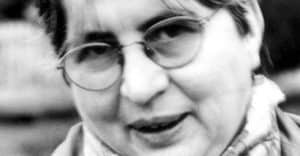 Founder of Turkey’s Freedom to Publish Committee, Zarakolu was a political essayist and the director of Belge Publishing House, and the only woman publishing director in Turkey at the time. Turkey’s government silences public discussion of taboo subjects such as minority rights or the country’s military history; Zarakolu’s aim was to “strike down all the taboos,” publishing books on exactly these topics. She was sentenced in 1995 to two years in prison for having published a book on the 1915 genocide of Turkish Armenians by the Turkish army, which the government of Turkey denies to this day. At the time of the award she was also facing prosecution on charges relating to other controversial Belge books, most notably “Weapons Transfers and Violations of the Laws of War in Turkey,” a report by the New York-based Human Rights Watch. She was arrested over 30 times throughout her life, and was imprisoned four times for her publications. Ayse Nur Zarakolu died in hospital in Istanbul on January 28, 2002. She had been suffering from cancer.
Founder of Turkey’s Freedom to Publish Committee, Zarakolu was a political essayist and the director of Belge Publishing House, and the only woman publishing director in Turkey at the time. Turkey’s government silences public discussion of taboo subjects such as minority rights or the country’s military history; Zarakolu’s aim was to “strike down all the taboos,” publishing books on exactly these topics. She was sentenced in 1995 to two years in prison for having published a book on the 1915 genocide of Turkish Armenians by the Turkish army, which the government of Turkey denies to this day. At the time of the award she was also facing prosecution on charges relating to other controversial Belge books, most notably “Weapons Transfers and Violations of the Laws of War in Turkey,” a report by the New York-based Human Rights Watch. She was arrested over 30 times throughout her life, and was imprisoned four times for her publications. Ayse Nur Zarakolu died in hospital in Istanbul on January 28, 2002. She had been suffering from cancer.
MA THIDA, Myanmar
1996 PEN/Barbara Goldsmith Freedom to Write Award
Status: Released
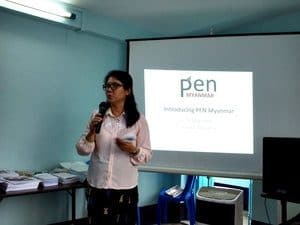 In 1993, Ma Thida was sentenced to 20 years’ imprisonment in Burma for “endangering public peace, having contact with illegal organizations, and distributing unlawful literature.” The charges were based on her tireless work to promote democratic change. A campaign assistant to Aung San Suu Kyi, the Nobel laureate whose landslide victory in the 1990 elections was disregarded by the military government, Ma Thida has written many articles and stories about the damage done in her country by successive repressive regimes. She is also a qualified physician and the founder of a clinic for women. A prolific writer of fiction, she is author of The Sunflower and In the Shade of an Indian Almond Tree, among other titles, most of which have been banned in Burma. While being held in solitary confinement at Rangoon’s Insein Jail, she contracted tuberculosis. She was released on February 12, 1999, “on humanitarian grounds.” Ma Thida founded PEN Myanmar and served as its president until 2016, and remains active in advocating for free expression in Myanmar.
In 1993, Ma Thida was sentenced to 20 years’ imprisonment in Burma for “endangering public peace, having contact with illegal organizations, and distributing unlawful literature.” The charges were based on her tireless work to promote democratic change. A campaign assistant to Aung San Suu Kyi, the Nobel laureate whose landslide victory in the 1990 elections was disregarded by the military government, Ma Thida has written many articles and stories about the damage done in her country by successive repressive regimes. She is also a qualified physician and the founder of a clinic for women. A prolific writer of fiction, she is author of The Sunflower and In the Shade of an Indian Almond Tree, among other titles, most of which have been banned in Burma. While being held in solitary confinement at Rangoon’s Insein Jail, she contracted tuberculosis. She was released on February 12, 1999, “on humanitarian grounds.” Ma Thida founded PEN Myanmar and served as its president until 2016, and remains active in advocating for free expression in Myanmar.
ANONYMOUS, Africa
1996 PEN/Barbara Goldsmith Freedom to Write Award
Status: Released
The family of 1996’s second recipient requested that he remain anonymous for his own safety. A writer and television producer from a country in Africa, he had been held without charge or trial for 14 months at the time the award was bestowed. His friends and colleagues believed that he had been arrested to prevent him from producing a television documentary series he was planning about democratic change on the African continent with a special segment about his home country. PEN had received reports it believed to be reliable indicating that he was subjected to severe beatings in the early days of his detention. He is married with two sons. His family used the award money to hire a local lawyer to challenge his detention, and he was released within three months of having received the award. He must, however, remain anonymous as he remains under constant police surveillance.
SAN SAN NWE, Myanmar
1995 PEN/Barbara Goldsmith Freedom to Write Award
Status: Released
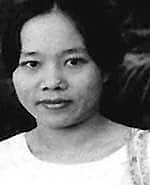 San San Nwe was sentenced to 10 years’ imprisonment in Burma for “spreading information injurious to the state” and “giving one-sided views” to foreign reporters. The reason underlying her imprisonment is her active support for Aung San Suu Kyi, the Nobel laureate whose party won a landslide victory in the 1990 elections but who is held under house arrest by the military government. San San Nwe is the author of Prison of Darkness, a novel, and many other works of fiction and nonfiction. Her daughter Myat Mo Mo Tun, who was imprisoned with her, was released in March 2000. San San Nwe was released early on July 18, 2001.
San San Nwe was sentenced to 10 years’ imprisonment in Burma for “spreading information injurious to the state” and “giving one-sided views” to foreign reporters. The reason underlying her imprisonment is her active support for Aung San Suu Kyi, the Nobel laureate whose party won a landslide victory in the 1990 elections but who is held under house arrest by the military government. San San Nwe is the author of Prison of Darkness, a novel, and many other works of fiction and nonfiction. Her daughter Myat Mo Mo Tun, who was imprisoned with her, was released in March 2000. San San Nwe was released early on July 18, 2001.
INDAMIRO RESTANO DÍAZ, Cuba
1995 PEN/Barbara Goldsmith Freedom to Write Award
Status: Released
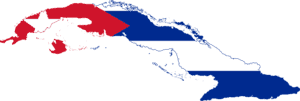 Restano is a published poet and former vice president of the Association of Independent Journalists of Cuba. At the time the award was bestowed, he was serving a ten-year sentence for “rebellion” and preparing publications “aimed at inciting civil disobedience.” The charges stemmed from his activities as founder and president of the Movement for Harmony, an opposition group that called for the release of all political prisoners and an end to Cuba’s one-party system. Due for release in December 2001, he was being held in Combinado del Este prison in Havana. A few weeks after the announcement of the award, Restano was released. He came to the PEN office the following September and accepted the award, stressing that PEN’s efforts had been instrumental in securing his release.
Restano is a published poet and former vice president of the Association of Independent Journalists of Cuba. At the time the award was bestowed, he was serving a ten-year sentence for “rebellion” and preparing publications “aimed at inciting civil disobedience.” The charges stemmed from his activities as founder and president of the Movement for Harmony, an opposition group that called for the release of all political prisoners and an end to Cuba’s one-party system. Due for release in December 2001, he was being held in Combinado del Este prison in Havana. A few weeks after the announcement of the award, Restano was released. He came to the PEN office the following September and accepted the award, stressing that PEN’s efforts had been instrumental in securing his release.
EDIP POLAT, Turkey
1994 PEN/Barbara Goldsmith Freedom to Write Award
Status: Released
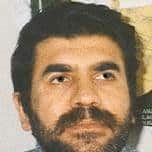 Polat is a Kurdish writer and biologist and comes from southeastern Turkey. The author of five books about Kurdish concerns, he has been jailed three times in the past for advocating Kurdish causes and, in 1994, was serving an 18-month sentence on charges of producing “separatist propaganda” in his book We Made Each Dawn a Newroz (Newroz being the Kurdish New Year). That book, a work of nonfiction based on his experiences in a Turkish military prison between 1982 and 1985, chronicles the grim treatment meted out to inmates by their jailers. In January 1995, Polat was released from prison but is now on trial for charges related to his fifth book,The Kurds and Kurdistan in the Language of Science. He was released on remission on August 3, 1998 under regulations that allow conditional release of Penal Code prisoners after serving 40% of their sentences.
Polat is a Kurdish writer and biologist and comes from southeastern Turkey. The author of five books about Kurdish concerns, he has been jailed three times in the past for advocating Kurdish causes and, in 1994, was serving an 18-month sentence on charges of producing “separatist propaganda” in his book We Made Each Dawn a Newroz (Newroz being the Kurdish New Year). That book, a work of nonfiction based on his experiences in a Turkish military prison between 1982 and 1985, chronicles the grim treatment meted out to inmates by their jailers. In January 1995, Polat was released from prison but is now on trial for charges related to his fifth book,The Kurds and Kurdistan in the Language of Science. He was released on remission on August 3, 1998 under regulations that allow conditional release of Penal Code prisoners after serving 40% of their sentences.
DOAN VIET HOAT, Vietnam
1994 PEN/Barbara Goldsmith Freedom to Write Award
Status: Released
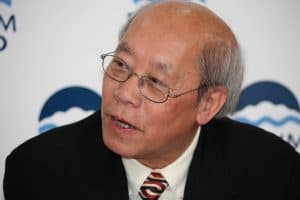 Doan, from South Vietnam, received his Ph.D. in education from Florida State University and, on his return to Saigon, became vice-president of Van Hanh University, a Buddhist institution. After Saigon fell to the North Vietnamese in 1975, he was detained in a reeducation camp for 12 years. Upon his release, he founded Freedom Forum, the discussion group and newspaper of the same name which advocated free speech and the release of all political prisoners. Doan was arrested in 1990 for allegedly attempting to overthrow the government, and sentenced to 20 years’ imprisonment in March 1993. The sentence later was changed to 15 years’ imprisonment and five years’ house arrest. He was released at the beginning of September 1998 as part of a large-scale prisoner amnesty to mark the country’s September 2 Independence Day.
Doan, from South Vietnam, received his Ph.D. in education from Florida State University and, on his return to Saigon, became vice-president of Van Hanh University, a Buddhist institution. After Saigon fell to the North Vietnamese in 1975, he was detained in a reeducation camp for 12 years. Upon his release, he founded Freedom Forum, the discussion group and newspaper of the same name which advocated free speech and the release of all political prisoners. Doan was arrested in 1990 for allegedly attempting to overthrow the government, and sentenced to 20 years’ imprisonment in March 1993. The sentence later was changed to 15 years’ imprisonment and five years’ house arrest. He was released at the beginning of September 1998 as part of a large-scale prisoner amnesty to mark the country’s September 2 Independence Day.
ZORAN MUTIC, Bosnia
1993 PEN/Barbara Goldsmith Freedom to Write Award
Status: Free
Mutic is a Bosnian Muslim of mixed race, and the translator into Serbian of several English-language books, including Salman Rushdie’s Midnight’s Children: he was a prominent defender of Rushdie after the issuing of the death sentence against him in 1989. Mutic’s works have been banned in Serbia and have frequently protested the rise of Serbian nationalism. He fled Sarajevo in 1992, just before the city came under siege, for Ljubljana where he began work on an exhibition about the war in Bosnia and a book of testimonies by Bosnian refugees.
SVETLANA SLAPSAK, Serbia
1993 PEN/Barbara Goldsmith Freedom to Write Award
Status: Free, In Exile
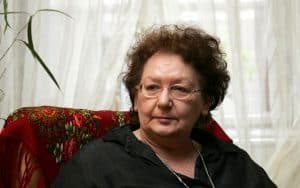 Slapsak, a Serb from Belgrade, is the author of the hugely popular novel Leon and Leonine. In the late 1960s she was once beaten by the police because of her work with the outspoken student magazine Frontisterion. In the 1980s she defended many opposition activists who were harassed or imprisoned by the authorities and served as president of the Committee for the Liberty of Expression. Slapsak has written articles criticizing Serbian nationalism and decrying injustices perpetrated by Serbians. In one series of articles, she protested a law that punished Albanians in Kosovo for raping Serbian women more severely than Serbians who raped Albanians. In September 1991, she fled to Slovenia, where she has organized the women’s anti-war group Silence Kills: Let Us Speak Up for Peace. After receiving the award, she was able to facilitate her application for Slovenian citizenship and secured the Laurie New Jersey Chair in Women’s Studies at Rutgers University from 1994-1995.
Slapsak, a Serb from Belgrade, is the author of the hugely popular novel Leon and Leonine. In the late 1960s she was once beaten by the police because of her work with the outspoken student magazine Frontisterion. In the 1980s she defended many opposition activists who were harassed or imprisoned by the authorities and served as president of the Committee for the Liberty of Expression. Slapsak has written articles criticizing Serbian nationalism and decrying injustices perpetrated by Serbians. In one series of articles, she protested a law that punished Albanians in Kosovo for raping Serbian women more severely than Serbians who raped Albanians. In September 1991, she fled to Slovenia, where she has organized the women’s anti-war group Silence Kills: Let Us Speak Up for Peace. After receiving the award, she was able to facilitate her application for Slovenian citizenship and secured the Laurie New Jersey Chair in Women’s Studies at Rutgers University from 1994-1995.
NIZAR NAYOUF, Syria
1993 PEN/Barbara Goldsmith Freedom to Write Award
Status: Released, In Exile
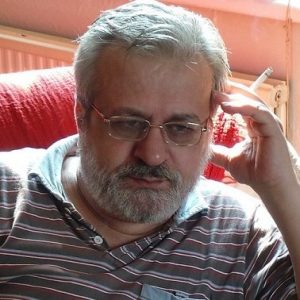 Nayouf is a writer, sociologist, and human rights activist who at the time of the award was serving a 10-year prison sentence with hard labor. Arrested in January 1991 on charges of “disseminating false information” in his work as information officer for the Committee for the Defense of Democratic Freedoms, he is alleged to have been tortured severely while in pretrial detention. Reportedly, he could not walk unaided at his trial the following year. Nayouf has written for the weekly Al-Huriyya and the literary magazine Al Thaqafa al Ma’arifa. He was released from prison on May 6, 2001.
Nayouf is a writer, sociologist, and human rights activist who at the time of the award was serving a 10-year prison sentence with hard labor. Arrested in January 1991 on charges of “disseminating false information” in his work as information officer for the Committee for the Defense of Democratic Freedoms, he is alleged to have been tortured severely while in pretrial detention. Reportedly, he could not walk unaided at his trial the following year. Nayouf has written for the weekly Al-Huriyya and the literary magazine Al Thaqafa al Ma’arifa. He was released from prison on May 6, 2001.
THIAGARAJAH SELVANITHY (“SELVI”), Sri Lanka
1992 PEN/Barbara Goldsmith Freedom to Write Award
Status: Executed
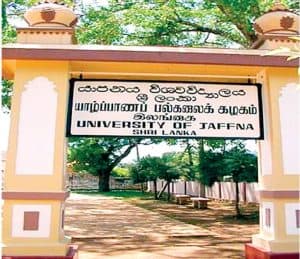 Selvi was a Tamil poet from Jaffna in Sri Lanka. A third-year student in Theater and Drama Arts in the University of Jaffna, Selvi was arrested by the Liberation Tigers of Tamil Eelam (LTTE, or Tamil Tigers) on August 30, 1991. She was the founder of the feminist journal Tholi and was a gifted young poet who in her work deplored the carnage brought about by the conflict between Tamils and Sinhalese. Selvi also produced two plays, one about dowry payments and the other about rape. The day before her abduction she was about to star in a play about the role of women in the Palestinian intifada. She was a prominent member of “Poorani Illam,” a women’s center in Jaffna, which gives support to women traumatized by bombing raids and bereavement. Selvi was born into a peasant family in Semamadu, a village about 80 miles south of Jaffna. In 1997, LTTE sources acknowledged that she was executed.
Selvi was a Tamil poet from Jaffna in Sri Lanka. A third-year student in Theater and Drama Arts in the University of Jaffna, Selvi was arrested by the Liberation Tigers of Tamil Eelam (LTTE, or Tamil Tigers) on August 30, 1991. She was the founder of the feminist journal Tholi and was a gifted young poet who in her work deplored the carnage brought about by the conflict between Tamils and Sinhalese. Selvi also produced two plays, one about dowry payments and the other about rape. The day before her abduction she was about to star in a play about the role of women in the Palestinian intifada. She was a prominent member of “Poorani Illam,” a women’s center in Jaffna, which gives support to women traumatized by bombing raids and bereavement. Selvi was born into a peasant family in Semamadu, a village about 80 miles south of Jaffna. In 1997, LTTE sources acknowledged that she was executed.
JEAN MARIO PAUL, Haiti
1992 PEN/Barbara Goldsmith Freedom to Write Award
Status: Released
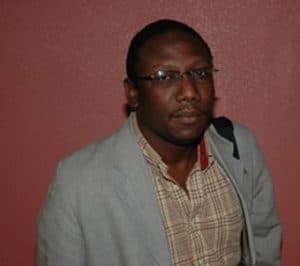 Journalist and Radio correspondent, Paul is a native of Petit Gôave, 20 miles southwest of Port-au-Prince. Paul was well-known for his stories broadcast on Radio Antilles exposing local official corruption. He also wrote as a political analyst for two newspapers: Petit Gôave Info and May Nan May, a Catholic journal. In the wake of the coup which ousted President Aristide, his home and that of his mother’s were burnt down. On November 9, 1991, Paul was arrested while covering a demonstration in Grand Gôave and was charged with setting fire to a court house and police station and with possession of firearms. Paul denied the charges and no credible evidence of his guilt was ever produced. Paul was, however, brutally tortured while in police detention and was briefly hospitalized as a result. Two weeks after PEN announced the award at its annual benefit, Paul was released and all charges against him dropped. In August 1992, Paul traveled to New York where PEN hosted a press conference on his behalf at which he accepted his award.
Journalist and Radio correspondent, Paul is a native of Petit Gôave, 20 miles southwest of Port-au-Prince. Paul was well-known for his stories broadcast on Radio Antilles exposing local official corruption. He also wrote as a political analyst for two newspapers: Petit Gôave Info and May Nan May, a Catholic journal. In the wake of the coup which ousted President Aristide, his home and that of his mother’s were burnt down. On November 9, 1991, Paul was arrested while covering a demonstration in Grand Gôave and was charged with setting fire to a court house and police station and with possession of firearms. Paul denied the charges and no credible evidence of his guilt was ever produced. Paul was, however, brutally tortured while in police detention and was briefly hospitalized as a result. Two weeks after PEN announced the award at its annual benefit, Paul was released and all charges against him dropped. In August 1992, Paul traveled to New York where PEN hosted a press conference on his behalf at which he accepted his award.
ABRAHAM SERFATY, Morocco
1991 PEN/Barbara Goldsmith Freedom to Write Award
Status: Released, Deceased
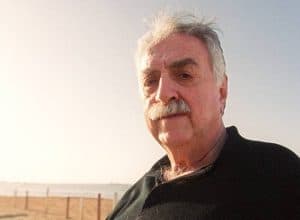 Editor of the former literary magazine Souffles, Abraham Serfaty was serving a life sentence from 1974 until his release from prison in September 1991. He was sentenced solely on account of his political and literary activities. Serfaty attributed his release in no small part to the campaign mounted on his behalf by his wife, Christine Jouvin, and by PEN. Serfaty died in Marrakech in November 2010.
Editor of the former literary magazine Souffles, Abraham Serfaty was serving a life sentence from 1974 until his release from prison in September 1991. He was sentenced solely on account of his political and literary activities. Serfaty attributed his release in no small part to the campaign mounted on his behalf by his wife, Christine Jouvin, and by PEN. Serfaty died in Marrakech in November 2010.
FRANCISCO VALENCIA, El Salvador
1991 PEN/Barbara Goldsmith Freedom to Write Award
Status: Free, Continued Harassment
 Editor of El Diario Latino, hailed by The New York Times as that country’s “only independent newspaper,” Valencia continued to publish despite threats to the staff and a firebomb attack on his office in February 1991 in which most of the paper’s equipment was destroyed. The award helped to finance the paper’s return to full operations. The perpetrators of the firebomb attack, however, have not been apprehended.
Editor of El Diario Latino, hailed by The New York Times as that country’s “only independent newspaper,” Valencia continued to publish despite threats to the staff and a firebomb attack on his office in February 1991 in which most of the paper’s equipment was destroyed. The award helped to finance the paper’s return to full operations. The perpetrators of the firebomb attack, however, have not been apprehended.
JACK MAPANJE, Malawi
1990 PEN/Barbara Goldsmith Freedom to Write Award
Status: Released
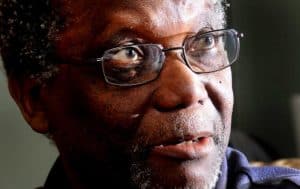 Malawi’s only internationally known poet, Jack Mapanje’s collection Of Chameleons and Gods has been published by Heineman but banned in his own country. Mapanje was detained without charge or trial for over three years until his release in May 1991. He and his wife and three children subsequently moved to England where he has held a range of teaching positions in Creative Writing and Literatures of Incarceration. He made a return visit to Malawai in 1994 to make a documentary with BBC2.
Malawi’s only internationally known poet, Jack Mapanje’s collection Of Chameleons and Gods has been published by Heineman but banned in his own country. Mapanje was detained without charge or trial for over three years until his release in May 1991. He and his wife and three children subsequently moved to England where he has held a range of teaching positions in Creative Writing and Literatures of Incarceration. He made a return visit to Malawai in 1994 to make a documentary with BBC2.
BEI DAO, China
1990 PEN/Barbara Goldsmith Freedom to Write Award
Status: In Exile
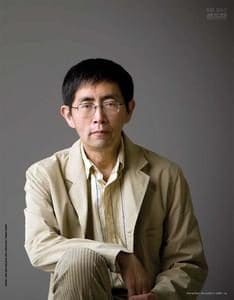 One of China’s most famous poets, Bei Dao initiated an appeal for the release of Chinese political prisoners in the months leading up to the June 3, 1989 clampdown on the students’ Tiananmen Democracy Movement. Like many of China’s prominent writers, Bei Dao was forced to live in exile, but he used the award to set up the magazine Today, disseminated among the Chinese intellectual community outside China.
One of China’s most famous poets, Bei Dao initiated an appeal for the release of Chinese political prisoners in the months leading up to the June 3, 1989 clampdown on the students’ Tiananmen Democracy Movement. Like many of China’s prominent writers, Bei Dao was forced to live in exile, but he used the award to set up the magazine Today, disseminated among the Chinese intellectual community outside China.
NGUYEN CHI THIEN, Vietnam
1989 PEN/Barbara Goldsmith Freedom to Write Award
Status: Released, Deceased
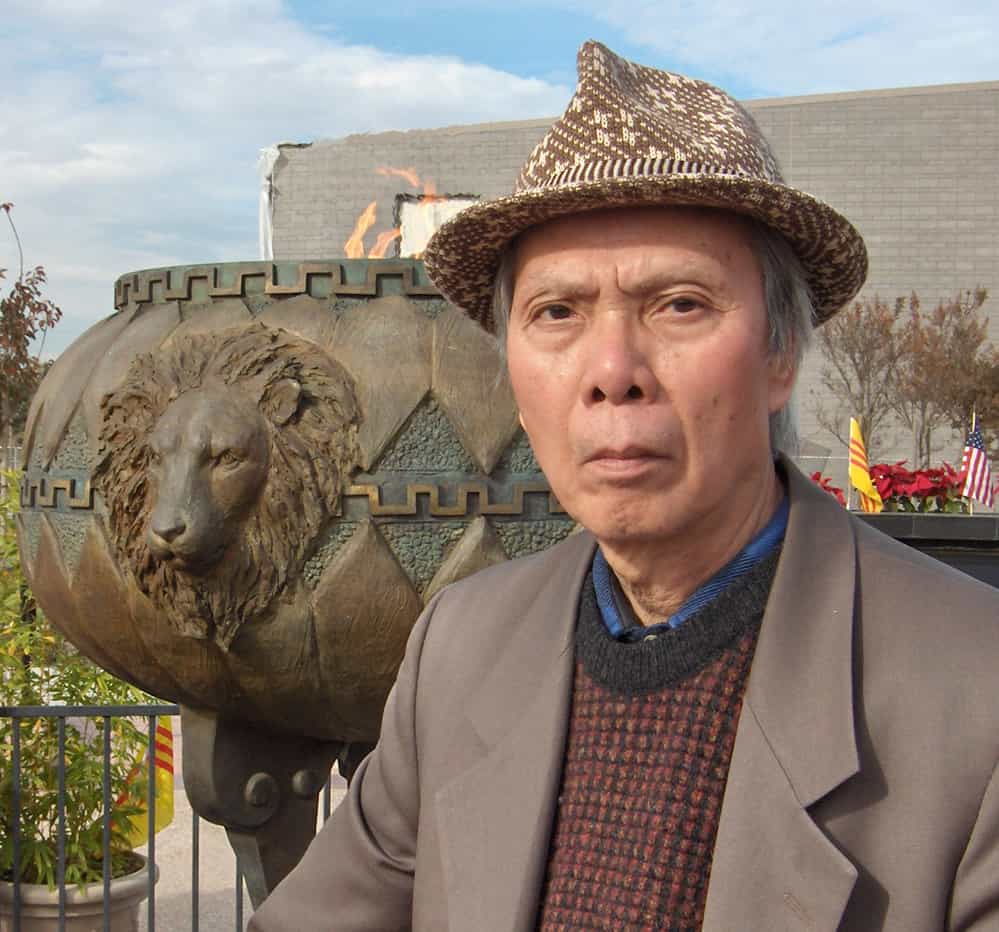
Nguyen’s collection of poetry, Flowers From Hell, has been published in the West. Nguyen spent most of his adult life behind bars but was released from prison two years after receiving the award. He subsequently moved to a town near Hanoi, where his state of health began to improve. Nguyen Chi Thien died in California in October 2012.
MARTHA KUMSA, Ethiopia
1989 PEN/Barbara Goldsmith Freedom to Write Award
Status: Released
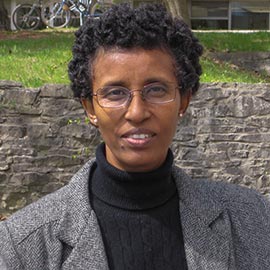 Writer and journalist Kumsa was released from prison after several years of detention without charge or trial a few months after she received the award. She subsequently reunited with her three children and moved to Canada. When PEN granted her the award, her name had to be kept anonymous; now, fortunately, she is out of all danger.
Writer and journalist Kumsa was released from prison after several years of detention without charge or trial a few months after she received the award. She subsequently reunited with her three children and moved to Canada. When PEN granted her the award, her name had to be kept anonymous; now, fortunately, she is out of all danger.
MAINA WA KINYATTI, Kenya
1988 PEN/Barbara Goldsmith Freedom to Write Award
Status: Released
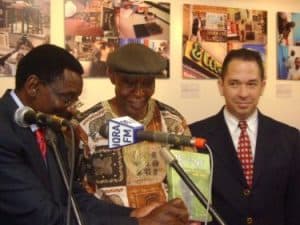 Writer and historian Maina wa Kinyatti was released on October 17, 1988, after serving six and one half years in prison. He subsequently moved to New York, which was fortunate in that, had he stayed in Kenya, he would almost certainly have been rearrested given the current repressive atmosphere there just now.
Writer and historian Maina wa Kinyatti was released on October 17, 1988, after serving six and one half years in prison. He subsequently moved to New York, which was fortunate in that, had he stayed in Kenya, he would almost certainly have been rearrested given the current repressive atmosphere there just now.
PRAMOEDYA ANANTA TOER, Indonesia
1988 PEN/Barbara Goldsmith Freedom to Write Award
Status: Released, Deceased
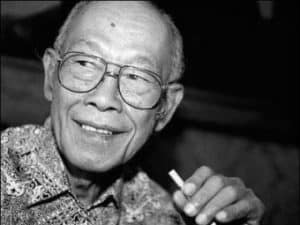 Toer was placed under city arrest and though he is Indonesia’s most famous novelist, he is still banned in his own country. William Morrow, however, has published his novels The Fugitive and This Earth of Mankind, the first part of Toer’s famous quartet of novels. His house arrest was lifted in 1992. Toer died in 2006.
Toer was placed under city arrest and though he is Indonesia’s most famous novelist, he is still banned in his own country. William Morrow, however, has published his novels The Fugitive and This Earth of Mankind, the first part of Toer’s famous quartet of novels. His house arrest was lifted in 1992. Toer died in 2006.
MATSEMELA MANAKA, South Africa
1987 PEN/Barbara Goldsmith Freedom to Write Award
Status: Deceased
The playwright Matsemela Manaka used the award to fund a playwright workshop for young authors in Soweto. He later wrote to PEN saying: “Our playwrights’ workshop was very successful and we hope to publish the playscript immediately after the production for public performances . . . The Freedom to Write Award has made wonders for me. I have received letters from all sorts of hidden corners congratulating me.” Manaka died in a car accident in 1999.
NIZAMETDIN AKHMETOV, Soviet Union
1987 PEN/Barbara Goldsmith Freedom to Write Award
Status: Released
The poet Nizametdin Akhmetov was released on June 4, 1987, after 20 years’ imprisonment in labor camps and psychiatric hospitals. He lived in Hamburg, West Germany, until he returned to the Soviet Union and was re-arrested. Thanks to the efforts of PEN, and especially those of Russian PEN, he was quickly released again. On receiving the award, Akhmetov wrote “. . . I reckon that I was released by the Soviet authorities and permitted to travel to the West because of the pressure exerted by the international community and not least by efforts of PEN Clubs of various countries . . . I came to Germany to relax in a free country, to rest after 20 years’ long imprisonment, to improve my health, to thank everybody who was taking care of my affairs, and subsequently to return to my motherland to continue with my cause. . . I am extremely grateful to American PEN for its efforts for my liberation, and I’m especially grateful for receiving from you the Freedom to Write award.”

